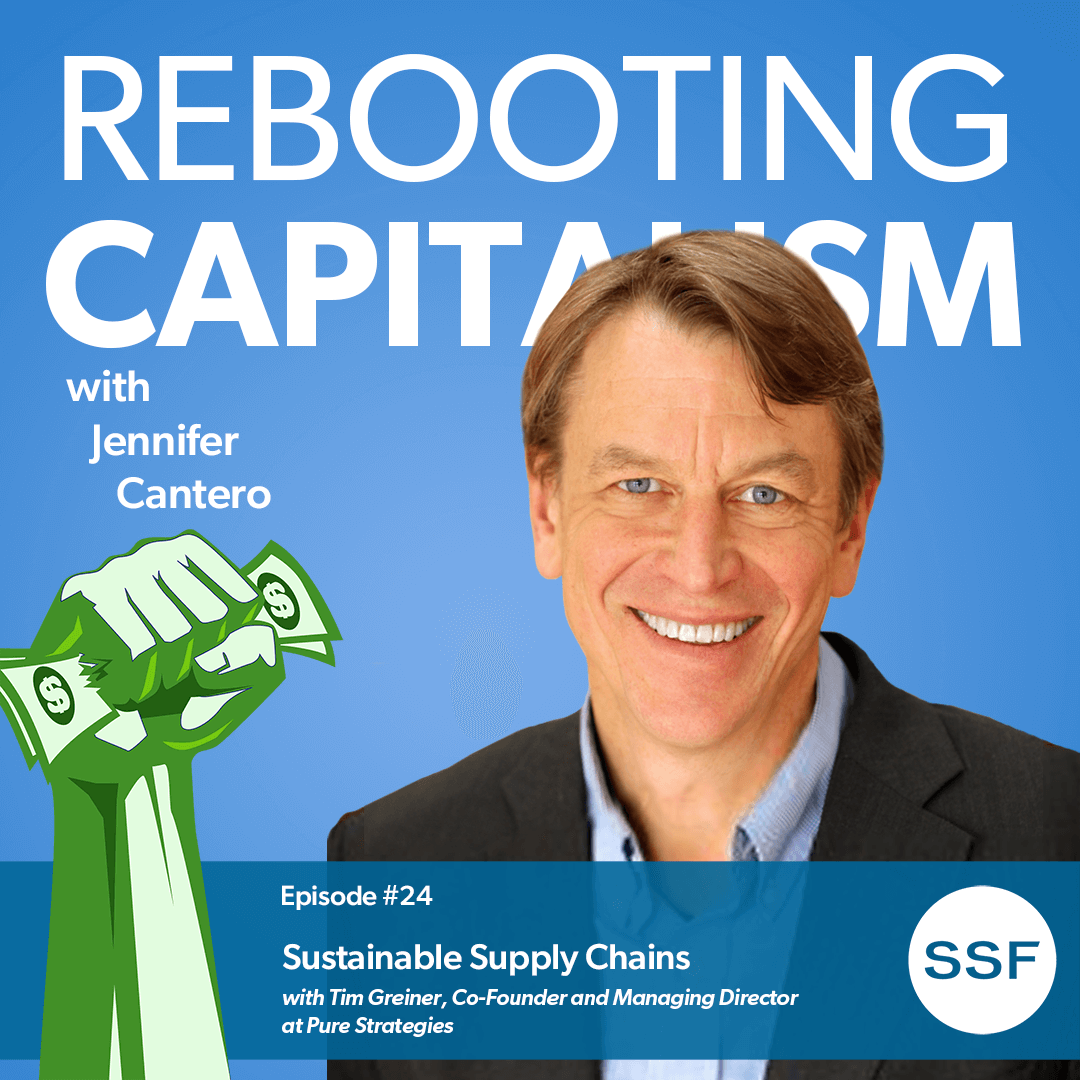
Episode #24 — Sustainable Supply Chains
Tim Greiner, Co-founder and Managing Director at Pure Strategies
In this episode, find out why assessing your supply chain for sustainability is so important and how to decide which metrics to assess it for. Having this conversation with your suppliers can be challenging, so Tim shares how to make it easy and mutually beneficial. We talk about the benefits of working to create a more sustainable supply chain, and what you can do to start the shift today.
Show Notes
Companies in every industry are making the shift to become more sustainable and ethical. This shift forces them to look at their supply chain and acknowledge where it could improve.
My guest today, Tim Greiner, helps businesses transform their supply chains, engage with suppliers, improve protocols and identify risks. Making environmental, social, and ethical changes to your supply chain doesn’t have to be overwhelming with the help of Tim’s team at Pure Strategies.
In this episode, find out why assessing your supply chain for sustainability is so important and how to decide which metrics to assess it for. Having this conversation with your suppliers can be challenging, so Tim shares how to make it easy and mutually beneficial. We talk about the benefits of working to create a more sustainable supply chain, and what you can do to start the shift today.
- How companies can decide what to screen their suppliers for
- The benefits of working towards a more sustainable supply chain
- How companies can start this conversation with their suppliers
- How to hold suppliers accountable
- Tim’s recommendations for supply chain management software
What You'll Learn
Links Mentioned
- Tim Greiner LinkedIn | Email | 978-525-0480
- Pure Strategies Website | Facebook | Twitter | LinkedIn
- SupplyShift
- Patagonia Worn Wear
- Ben & Jerry’s Caring Dairy Program
- Ep #36: Modern Day Slavery in the Supply Chain with Justin Dillon of FRD
Disclaimer
Rebooting Capitalism is a podcast sponsored by Sensiba LLP. The statements, discussions, opinions, and other commentary provided within the program are solely intended for discussion purposes and do not constitute legal or professional advice. Listeners and participants should seek independent legal or professional advice. The views and opinions expressed in this podcast are those of the host and guests and do not necessarily reflect the views or positions of Sensiba LLP. Sensiba LLP does not assume any responsibility or liability for the accuracy, completeness, or reliability of any information discussed within the program.
By accessing or participating in the program, listeners and participants agree to these terms and conditions, acknowledging that they have read and understand the disclaimer and agree to be bound by its provisions.